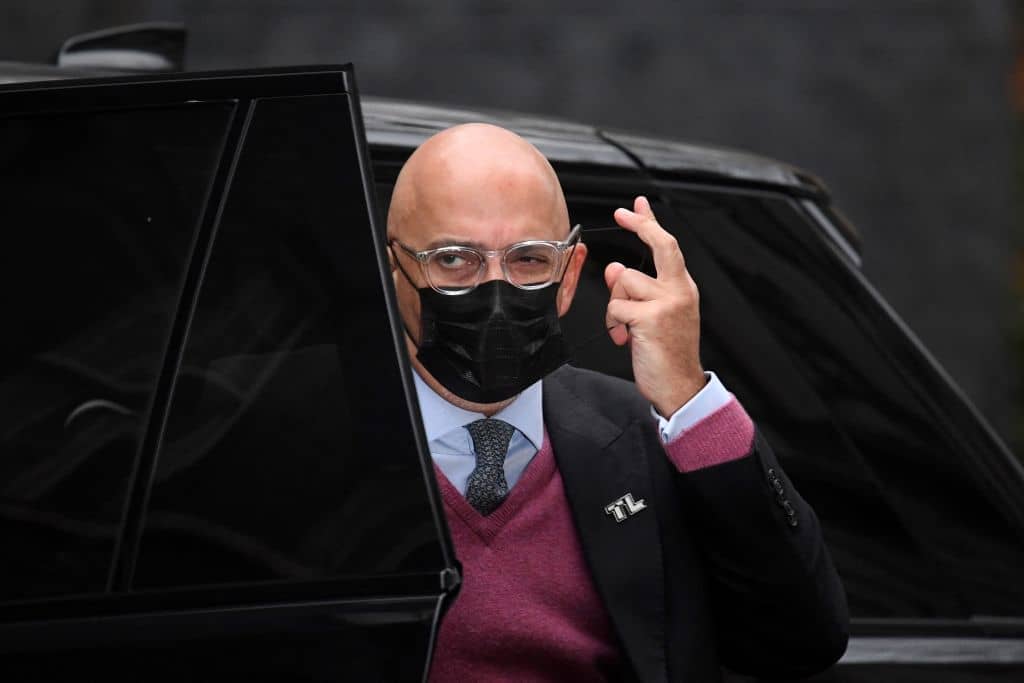Nadhim Zahawi’s recent reminder to schools to keep their teaching politically neutral seems like common sense. The Education Secretary pointed to existing laws to show that while uncritical promotion of BLM ideology or climate activism to children wasn’t acceptable, controversial matters could still be taught with proper balance. But there were still predictable howls of protest from the usual quarters.
Hope not Hate accused the government of obsessing about ‘culture wars’. Amnesty International complained of a sinister chilling effect on classroom speech on current affairs and children’s loss of ‘safe spaces’. The NEU, Britain’s largest teaching union, said issuing warnings about class discussion of climate change, racism, poverty and the legacy of empire could decrease students’ engagement. Not to be outdone, activist, broadcaster and one-time schools mental health adviser Natasha Devon lambasted the whole exercise as unfair to minorities. ‘I work with 14- to 18-year-olds and my experience is that young people are bringing ideas from social media, from activists that they admire, into the classroom,’ according to Devon.
Zahawi has an existential battle on his hands
It’s not hard to see the flaws in these complaints. Talk of brewing up a culture war is simply lazy invective, since such an accusation could apply to anyone advancing any point of view at all about political education. As regards safe spaces to discuss politically-charged issues, by appearing to call for their preservation, Amnesty have inadvertently made Zahawi’s precise point for him. Safe spaces, after all, are places where people are guaranteed that they will not encounter views they disagree with or find uncongenial, still less be expected to defend their own position against them: exactly what the law rightly says that school classrooms must not be.
If the NEU seriously suggests that rigorously balanced discussion puts students off, the remedy lies with their members, who one might have thought were paid precisely to motivate students to think for themselves and see both sides of the question. And by all means encourage pupils to talk about ideas obtained from social media and fashionable activists. But with ideas like these, picked up from entirely one-sided sources out to convince the young and easily persuadable, it is all the more vital that schools robustly challenge them.
But there is a much more serious point here. The virulence of the reaction to Zahawi’s reminder carries two uncomfortable inferences. One is that it touched a raw nerve because, whatever the law says, a good deal of teaching is indeed already politically skewed without much being done about it. Many teachers are overwhelmingly leftish in their politics, and their unions more so. Headteachers are fiercely defensive of their staff, and many Labour local authorities are unlikely to be keen to intervene to counter leftish bias. It is also far easier for classes to use lesson packs from organisations like Stonewall (as Debbie Hayton pointed out on Saturday) which can be easier, and often cheaper, for education authorities to buy rather than go to the trouble of preparing genuinely neutral ones. But what agenda are those who create these materials pushing?
The second inference is more disconcerting and begs a question: do many progressives actually care about balance in political matters? Some, one suspects, go so far as to welcome the sidelining of alternatives they disagree with. Those objecting to the government’s advice may have made a necessary bow in the direction of the law’s requirement of impartiality, but it seems plausible that plenty of teachers wouldn’t be unhappy for schools to be given free rein to teach as they wish.
On what to do about climate change, for example, many are convinced that the matter is beyond argument, and that introducing any requirement of impartiality or seeing both sides is a tiresome distraction: a view that has now infected much of politics generally (witness Labour MP Nadia Whittome’s announcement last month of how scandalised she was that a student should have had to submit an essay on the possible benefits of climate change). Similarly with things like anti-racism, poverty and the history of empire: objections to government-imposed controls on how these things are taught stem as often as not from a conviction that these things need to be placed beyond controversy and protected from political controversy.
If this is right then Zahawi has an existential battle on his hands. The Education Secretary must persuade voters of the need to preserve UK education as an empirical exercise that teaches pupils to think for themselves rather than absorbing oven-ready ideology. He must also keep out those who would like to take it over as an exercise in indoctrination beyond the control of our democracy. For the benefit of our young people this is a fight he must win. Let’s hope he holds firm and ignores the howls of outrage.






Comments